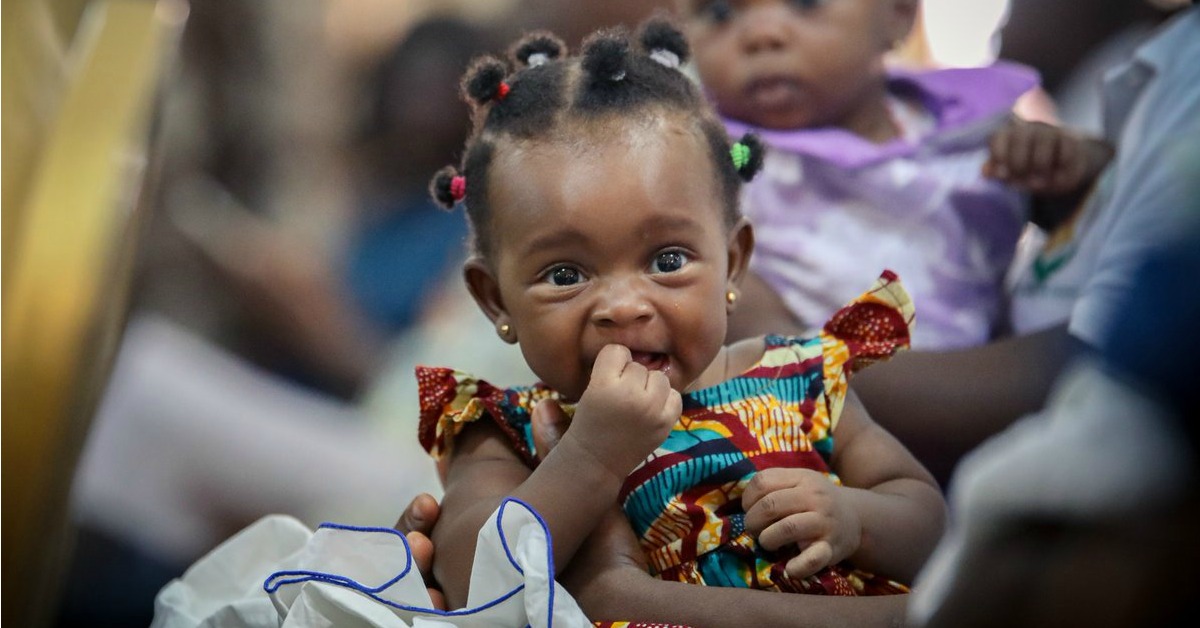A controversial malaria vaccine is being piloted in three African countries.
The RTS,S vaccine pilot program began in Malawi before going to Kenya and Ghana, according to an April 23 press release from the World Health Organization (WHO). It will be available for children up to 2 years of age. The three nations were chosen out of 10 African countries because of their functioning anti-malaria initiatives and areas with high transmission rates. The project will be funded by the Global Fund to Fight AIDS, Tuberculosis and Malaria, Gavi, the Vaccine Alliance and Unitaid. Pharma giant GlaxoSmithKline (GSK) aided in the develop of the vaccine and will donate 10 million doses. The initiative will cost an estimated $50 million.
Malaria is a rampant killer in Africa and other underdeveloped countries. Children are the most vulnerable victims.
Well done! ????????????????????????
Baby Susanna is #Ghana’s first baby receiving RTS,S – the #Malaria pilot vaccine launched in the country this week pic.twitter.com/sejLMj0n58— World Health Organization (WHO) (@WHO) May 1, 2019
Over 250K children die from the disease every year. The vaccine comes as cases of malaria are rising.
“We have seen tremendous gains from bed nets and other measures to control malaria in the last 15 years, but progress has stalled and even reversed in some areas,” said WHO Director-General Dr. Tedros Adhanom Ghebreyesus.
“We need new solutions to get the malaria response back on track, and this vaccine gives us a promising tool to get there. The malaria vaccine has the potential to save tens of thousands of children’s lives.”
A new way to combat malaria is welcomed but the vaccine has setbacks according to the International Journal of Science.
Blavitize your inbox! Join our daily newsletter for fresh stories and breaking news.
During clinical trials conducted between 2009 and 2014, the vaccine only prevented malaria in 40 percent of clinical patients and 30 percent of severe cases.
Additionally, children will have to get four shots before they turn two years old. Three of the doses have to be administered between five and nine months of age while the last can be given when the child turns two years old.
The vaccine was first developed in 1987 at the Walter Reed Army Institute of Research in Maryland. The Bill & Melinda Gates Foundation and GSK eventually funneled $700 million into the project.
Global Technical Director of the Malaria Consortium, James Tibenderana, believes researchers need to find a more efficient way to tackle malaria treatment.
“We need to rethink this whole process,” Tibenderana said. “We can’t expect pharma to spend another 30 years making a vaccine that will then be piloted for 3–4 years before people make their mind up about that result.”
Thomas Breuer, vaccine chief medical officer at GSK, agrees.
“We are incredibly proud to see it rolled out,” said Breuer. “This kind of endeavour can’t be repeated, from GSK’s point of view — we have to find other ways.”
Now, check these out:
Police Officer Who Violently Assaulted Dyma Loving Arrested On Misconduct And Battery Charges
Jury Vindicates Maryland Man Accused Of Killing An Officer Who Jumped In Driver's Side Window
